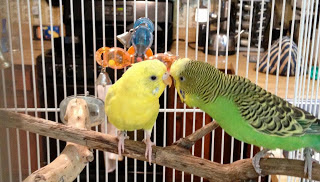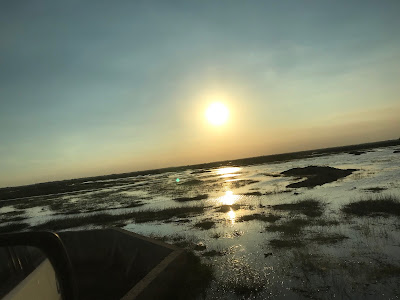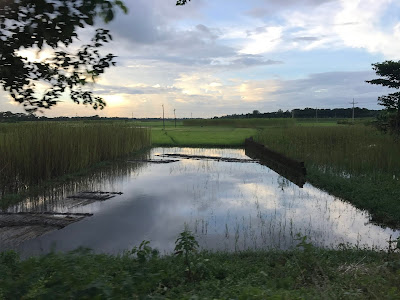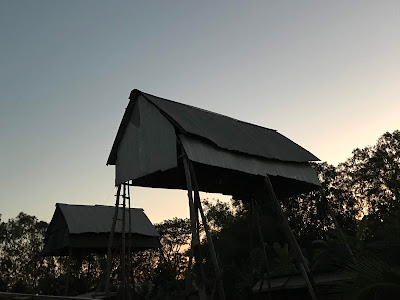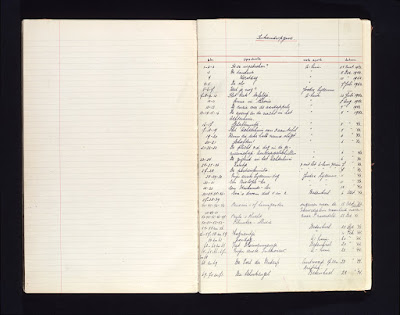Rest in Peace, Dominique
Dominique the parakeet, who came to us from the Fairfax County Humane Society shelter seven years ago, died yesterday. We never knew her age, but she could have been 10 or more by the time she passed away.
She was a small but valiant creature, and she proved herself loyal and strong on numerous occasions. Plagued for years by fatty tumors, she never let them slow her down. Even as late as yesterday afternoon she seemed strong enough to chatter and nuzzle with her cage-mate, the ever-so-chirpy Alfie.
In 2016, when her original partner, Sid, was ailing, the canary-yellow Dominique literally propped up the sick bird with her own body. And she bravely bore the antics of the young whippersnapper (Alfie) we brought in to take his place. Because Dominique really seemed to mourn Sid when he was gone. I was afraid she would pine away without another parakeet by her side.
The thing about a bird is that its death is preceded or accompanied by a fall. Not unlike humans, if you want to get biblical. But unlike humans, birds are creatures of the air, and to find one lying still on the bottom of the cage is sad indeed.
Rest in peace, Dominique.
(Above: Dominique and Sid in 2012)
